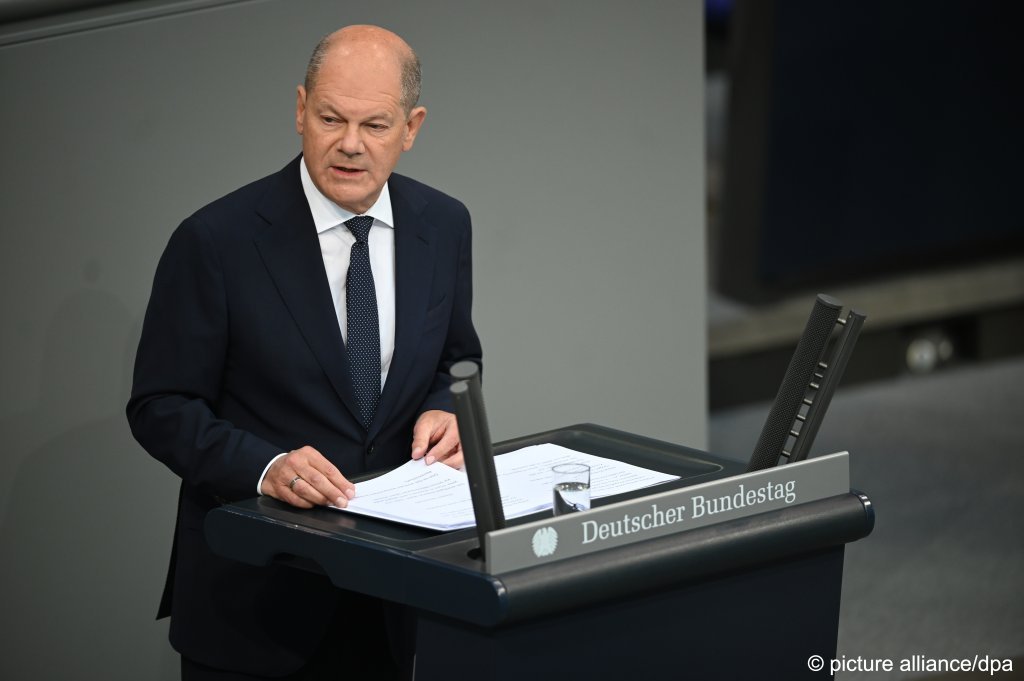The EU Commission is facing increased pressure to tighten rules for asylum seekers. 17 European countries have written a letter to Brussels demanding a harsher course.
The letter was submitted two weeks before an EU summit, which will focus on migration, among other issues.
It was signed by 14 EU member states including Germany, France and Italy, plus three countries belonging to Europe’s free movement zone, the Schengen area: Norway, Switzerland and Liechtenstein.
The European Commission had no immediate comment in response to the letter.
Less ECJ interference
The Reuters news agency quoted a diplomat from one of the EU countries that signed the letter as saying the following:
"The key message that all agree on is a clear signal to the Commission that we need a stricter EU returns system with clearer obligations for cooperation from the returnees and less interpretation by the European Court of Justice."
The diplomat asked Reuters not to be named "because of the sensitivity of the topic."
"We need a stricter EU returns system with ... less interpretation by the European Court of Justice."
What other changes do the countries want?
The letter proposes the introduction of a new law that would explicitly state that a government can detain an irregular migrant who poses a risk to national security. Such a provision has been under discussion since 2018.
The signatories also want the cases of migrants to be managed by all countries using the same computer software, so that people could be more easily traced in different EU countries.
Finally, the letter calls for a requirement that migrants cooperate with authorities.
Many EU member states complain that attempts to carry out forced returns of migrants are unsuccessful, making the authorities vulnerable to accusations of failed migration policy.
"It is still too common now for return procedures to be suspended because persons do not cooperate in identification, or disappear off the radar, or repeatedly launch appeals," the EU diplomat told Reuters.
Read AlsoFrance: 'Deport more and regularize fewer people' – are the government's aims achievable?
Political shift
The letter comes after a series of developments throughout the European Union, which have caused politicians across the political spectrum to reassess their stances on immigration issues.
Above all, election wins by right-wing and far-right parties across the bloc have shown how important the issue of migration has become for voters. Conservative parties calling for greater controls and more returns have surged in national and regional elections in Germany, France, the Netherlands, Italy and Finland in recent months.
In the most recent development, Austrian voters handed a first-ever general election win to the Freedom Party, which is known for its opposition to immigration as well as the European Union.
Read AlsoHow Europe's far right is changing EU asylum policy
Isolating Europe
In response to growing support for parties that are opposed to immigration, Germany last month extended temporary border checks to all its land borders, subject to renewal early next year.
France is also recalibrating its immigration outlook. French Prime Minister Michel Barnier announced his country might follow suit and introduce similar measures to Germany along France’s borders.

Crucial changes to irregular migration into the EU were agreed upon at the end of last year, with a pact to overhaul the bloc's immigration policies.
The document aims to make the management of immigration procedures more equitable, with all countries sharing responsibilities and costs associated with migration, rather than only the states at the EU's external borders.
The pact was hailed as a breakthrough after years of stalled talks.
But the rules, particularly those on deporting irregular migrants, are seen by some in the EU as too weak. France's interior minister, Bruno Retailleau, last week said his government wanted to renegotiate the pact and to reconsider the Schengen agreements.
Last month the Netherlands government applied to the European Commission to opt out of the bloc's asylum rules. However, such a move requires agreement from all 27 EU members and is unlikely to be approved.
Read AlsoGermany: Mixed success of land border checks
With Reuters
